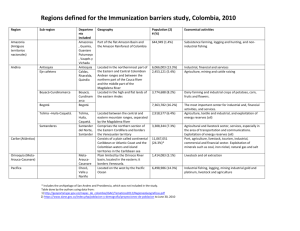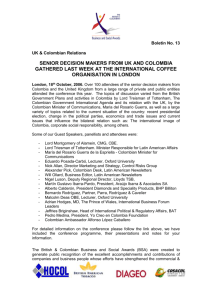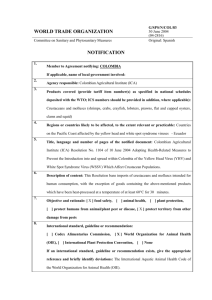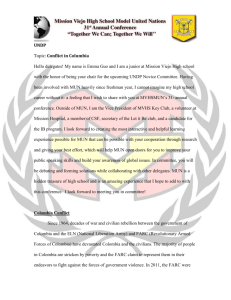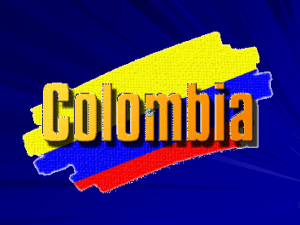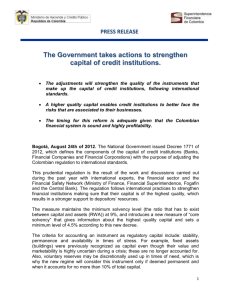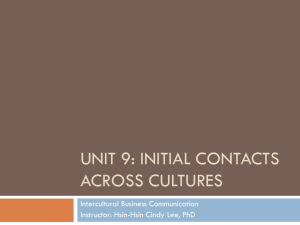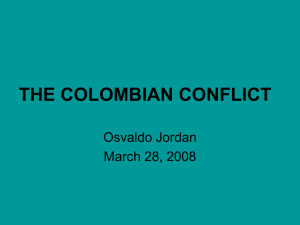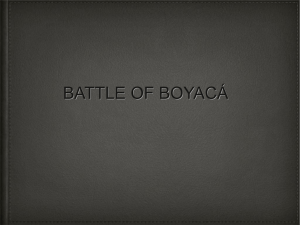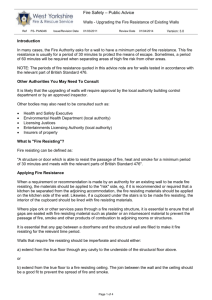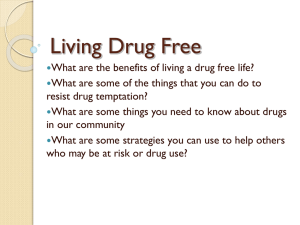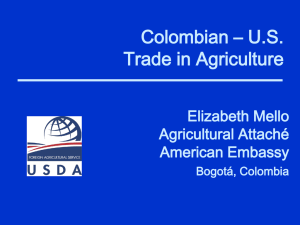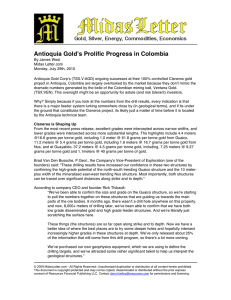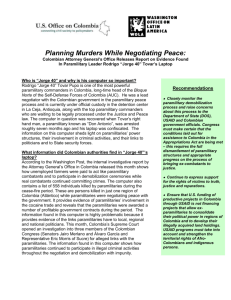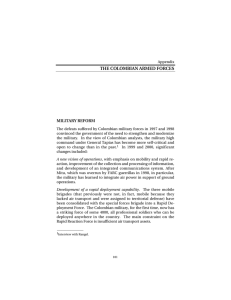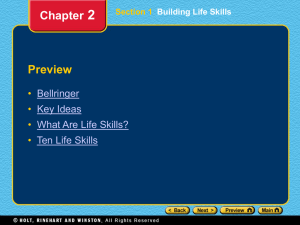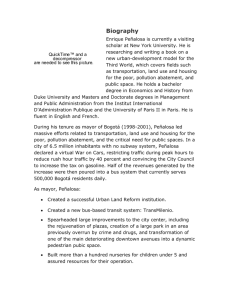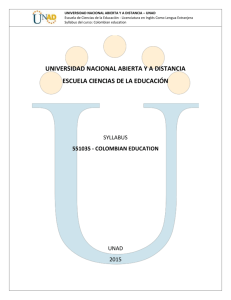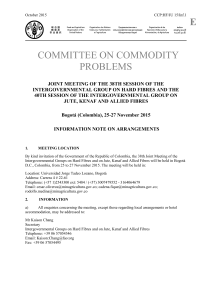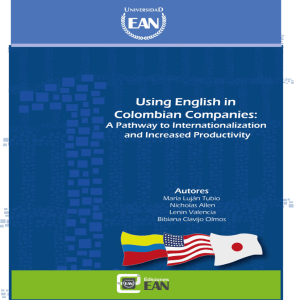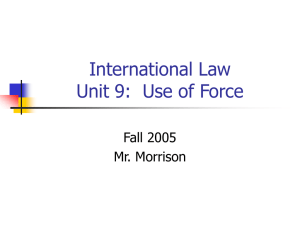Mauricio - CivilResistance.info
advertisement
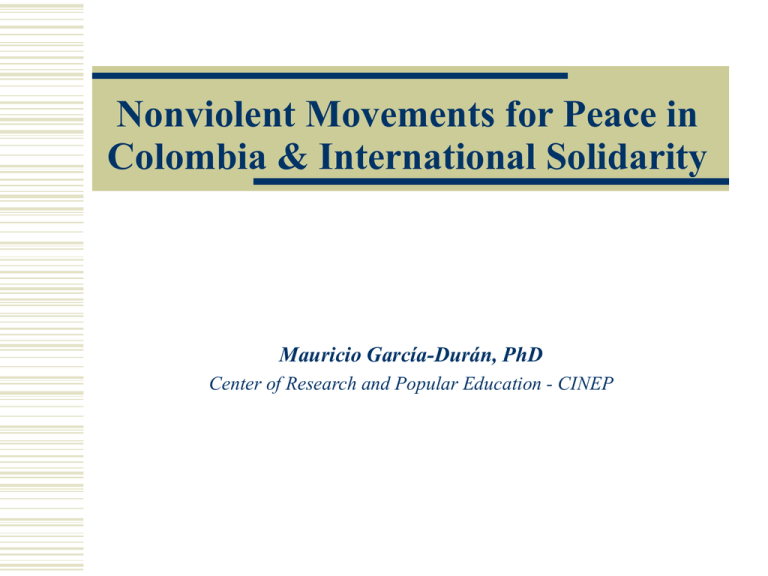
Nonviolent Movements for Peace in Colombia & International Solidarity Mauricio García-Durán, PhD Center of Research and Popular Education - CINEP Content of the presentation Some conceptual remarks Peace mobilization as non-violent movement Experiences of resistance in the Colombian context International solidarity Some conceptual remarks regarding the Colombian context Peace initiatives and non-violent perspective: a claim for peace does not mean necessarily a non-violent perspective Civil resistance as: Events of resistance facing the armed actors Events that express rejection of violent acts Communal efforts to protect life A repertoire of collective action for peace The Colombian peace mobilization has displayed a varied repertoire of collective action, normally with nonconfrontational style. Strategy 1 – Educating: meetings, forums and seminars, campaigns and education, cultural and sporting events, religious celebrations, and awards 50,1% Strategy 2 – Organizing: creation of organisations and networks 3,6% Strategy 3 – Politicking: electoral participation, processes of citizen coordination, and dialogue and negotiation 10,1% Strategy 4 – Protesting: demonstrations and marches, strikes, occupations and blockades 31,5% Strategy 5 – Resisting: actions of civil resistance, and declarations of peace zones 4,7% Collective action for peace by strategies (1978-2005) 300 250 150 100 50 Educating Organizing Politicking Protesting Resisting TOTAL 2005 2004 2003 2002 2001 2000 1999 1998 1997 1996 1995 1994 1993 1992 1991 1990 1989 1988 1987 1986 1985 1984 1983 1982 1981 1980 0 1979 Actions per year 200 A wide mobilizing infrastructure for resistance and peace CATEGORIES NATIONAL INITIATIVES REGIONAL INITIATIVES LOCAL INITIATIVES Protection, Defence and Resistance to Violence Citizen’s Mandate for Peace; The ‘No Más’ Mo-vement; Ruta Pacífica de las Mujeres; Conscientious Ob-jector’s Group Bajo Atrato Peace Com-munities (S. Francisco de Asís, Nuestra Señora del Carmen y Natividad de María); ‘Nasa’ Project; Indigenous Communities in Cauca, Chocó and Antioquia Carare-Opón Campesinos As-sociation; S. José de Apartadó Peace Community; Self-De-termination, Life and Dignity Communities (Cacarica, Da-beiba and Balsita); Women in Black; Murindo Committee of All United for Life and Peace Peace and Conflict Resolution Education Children’s Movement for Peace; Youth Network for Peace; Peace Week (Rede-paz); National Pilgrimage for Life, Justice and Peace (Bishops Conference); Mo-vement for Non-Violence in Colombia School of Peace and Coha-bitation (Peace Program-me); Montes de María Co-mmunication Collective; Network for Community Justice and Treatment of Conflicts (Justapaz) 100 Territories of Peace (or Municipalities of Peace); 100 Experiences of Participation (Redepaz) Deepening Democracy Strengthening of Marginali-zed Sectors (Planetapaz); Monitoring of Plan Colom-bia (Paz Colombia); Citizen’s Working Groups for an Agenda for Peace (Inde-paz); School for the Deve-lopment of Democratic Leadership (Viva la Ciudada-nia); Initiative of Colombian Women for Peace Departmental Constituent Assemblies of Antioquia, Tolima, and Nariño; Cons-tituent Assembly and Pea-ce Laboratory of Eastern Antioquia; Governors of the South’s Consensus for Peace Public Consultation in Agua-chica; Constituent Assemblies of Mogotes, Tarso, S. Luis, Micoahumado, Samaniego, Floridablanca, Sonsón, Guata-pé, & Granada; Community Peace Assemblies of Argelia, El Olival, El Hato, & Tibu; Pensilvania Vivid Community … (continuation) CATEGORIES NATIONAL INITIATIVES REGIONAL INITIATIVES LOCAL INITIATIVES Dialogue and Negotiation National Peace Council; National Conciliation Com-mission; National Network of Mayors for Peace; Civilian Facilitation Com-mission with ELN; Ideas for Peace Foundation; Peace Observatory 14 Departmental Councils for Peace; Association of Municipalities of Alto Ariari Municipal Peace Councils Peace and Development Network of Peace and Development Programmes 17 Peace and Development Programmes (4 of them as a peace ‘laboratories’) Networks and Coordinating Bodies Redepaz; Permanent As-sembly of Civil Society for Peace; National Network (& Alliance) of Women for Peace; University Network for Peace; Businessmen for Peace; Media for Peace 24 Departmental Working Groups for Peace; Soli-darity Network (Pueblos Hermanos, Lazos Visibles) Municipal Working Groups for Peace (around 150 in the whole country) Evolution of resisting as a strategy in the peace movement 20 18 16 14 Actions per year 12 10 8 6 4 2 0 1995 1996 1997 1998 Actions of civil resistance 1999 2000 2001 2002 2003 Declarations of peace zones 2004 2005 Types of actions in the resisting dynamic Declarations of neutrality and peace zones Actions of civil resistance Resisting as organizative and community processes International solidarity Local actions, campaigns and lobbying Witness and accompaniment Humanitarian assistance Funding
